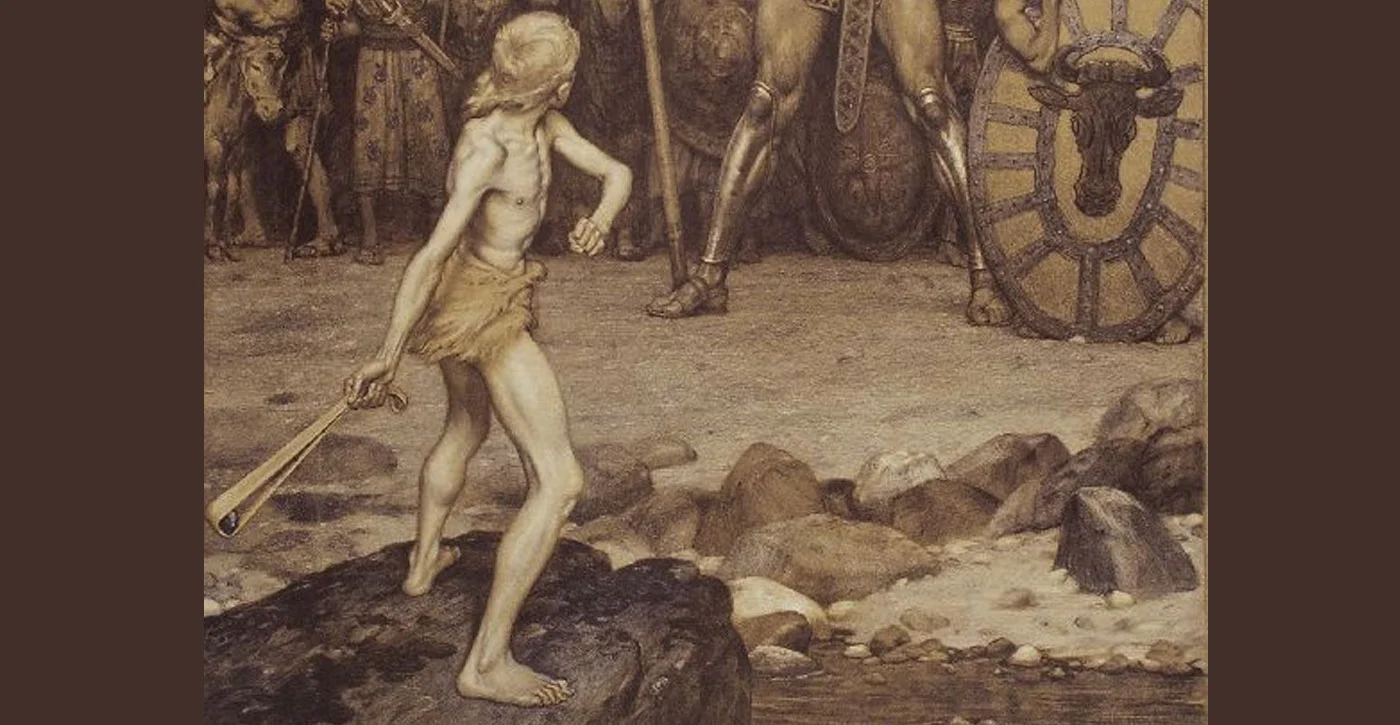It was the tapping that first made Janice aware of him. She looked up and located the source of the irritating noise.
A tall, white-haired man sat directly across the hospital waiting room from her wheelchair, his right hand holding what looked like a Bic pen. Staring at the ceiling, he was absent-mindedly rapping it against the chrome arm of his chair. What made the noise especially irritating was its irregular pattern: tap-tap-tap, tap-tap, tap-tap-tappity-tap.
Janice tried her best to ignore it. She checked the clock: 10:30. I’ve been sitting here for over an hour.
Tap-tap-tap-tap. Didn’t he realize how annoying it was? Probably not. He seemed distracted: picking up a magazine, flipping through a few pages, then putting it down impatiently. Janice guessed he was about 70. His horn-rimmed glasses and slightly rumpled business suit gave him the appearance of a retired lawyer or maybe a school teacher. American history, she thought. The sort of teacher who graded hard but was fair and held kids’ respect. He looked like a kind person.
To her chagrin, Janice realized the man she was speculating about had noticed her looking at him. She felt her face get warm.
“It was your tapping,” she blurted. “It . . . it wasn’t really bothering me, but. . . .” She paused, helpless and embarrassed. She was annoyed with herself for the silly lie.
He glanced down at his pen. “Oh, sorry,” he said. “I didn’t even know I was doing it. I guess I’m kinda preoccupied—or as kids today might say: ‘spaced out.’ Or maybe kids don’t use that expression anymore.: He gave her a rueful half-grin.
“Is it your wife who’s in surgery?” Janice asked.
“No,” he said. “I’m not married . . . not anymore.”
“Oh, I’m . . . I’m sorry.” That’s two stupid things I’ve said, Janice told herself.
“Is one of your relatives having surgery?” the man asked, getting up and taking a seat next to her.
“Yes, my aunt Carrie. She’s up in years and doesn’t really have any family except me and my two sisters. But they’re married and live halfway across the country.”
“What kind surgery was it?”
He seems genuinely interested, Janice thought. He’s not just tolerating this conversation.
“Oh, she fell and broke her pelvis. I’m worried about what will happen when she gets out of the hospital.”
“By the way, I’m David,” the man said.
“My name’s Janice, and I apologize for staring at you awhile ago.” She gave him a sheepish smile. “I was guessing that you had been a schoolteacher. Or still are.” Her face flushed again. “Uh, what I mean is, you don’t look too old to still be. . . .” She gave a nervous laugh and buried her face in her hands. “I can’t believe the mess I’m making of this conversation,” she said.
The man named David smiled at her confusion. “Actually, I find it rather charming,” he said with a laugh. “To set the record straight, I’m 72, and I retired from a career in business a few years ago. And I think this is the first time I’ve smiled since. . . .”
He paused. “Can I buy you a cup of coffee in the cafeteria? The person I’m waiting on won’t be out of surgery for at least another hour.”
“Same here. And I could sure use some coffee,” Janice said.
He stood up. “Now it’s my turn to be embarrassed,” he told her. “Do I offer to wheel you or do you. . .?”
“No need to be embarrassed,” she said. “I’m motorized. You can walk alongside me.”
Several minutes later, they were taking their first sips.
“You haven’t told me who you are waiting for,” Janice said.
His face clouded. “Someone who doesn’t know I’m here. Someone who. . . .” He hesitated and looked down at his hands. “I’m not at all sure he’ll even want to talk to me. If he recovers, that is.”
She saw his chin tremble slightly. “I’m sorry,” she said in a soft voice. “It’s okay if you’d rather not. . . .”
“No,” he said sharply. “It’s all right. I deserve it. I don’t even have the right to be here in the same hospital with him.”
Again he paused. “My son,” he said finally. “Donald is 36. He was in a serious car accident late last night. I found out about it through an old family friend. I haven’t talked to Donald for nearly 25 years.”
He looked at Janice and shook his head. “Look, I don’t mean to be dumping my tale of woe on you. I’m sure you have enough troubles of your own.” He gave a quick glance at her feet and then at her face.
“Forgive me,” he said. “I didn’t mean. . . .”
Janice interrupted his attempted apology. “Don’t worry. I’ve been dealing with this ‘trouble’ of mine for the past 20 years. Nearly half my life. There have been some hard times, but I’ve managed. And, David, there’s no need to apologize for telling me your story. That’s one of the nice things about people who come to hospitals. Everybody’s hurting in one way or another: young or old, rich or poor. A hospital is a great leveling place. And sometimes strangers are easier to talk to than people close to us. We don’t have to worry what they’ll think about us afterward. If you want to tell me about your son, well . . . people have told me I’m a good listener.”
He nodded gratefully and took a deep breath. “You’ve very kind. Actually, I can’t tell you much about my son. Like I said, we haven’t had contact for a long time. He was 15 when my first wife and I split up. Donald blamed it all on me. He refused to talk to me in person or on the phone. He never answered my letters. After a while I just . . . well, I gave up.”
“Does his mother know about the accident?”
“His mother died just last month. I . . . I know I should have tried to get in touch with Donald then, but I . . . didn’t. I was afraid.”
“Afraid?”
“I know, I know. It sounds stupid to say it, but I was afraid he would still be angry with me, still hate me. That’s been my trouble all along. I’m a coward. When things got tough in my marriages—both of them—I ran. And I think when the doctors tell me I can go in and talk to Donald, I’ll panic and just leave without seeing him.”
“Why do you think that?”
“Because I know myself. Ever since I was a kid, I’ve disappointed the people who cared about me. Even my name was a disappointment.”
“Your name?”
“David. I was named after my mother’s grandfather, who supposedly was a big hero in the Civil War. My mother used to tell me, ‘David, you’re named after two courageous warriors: your great grandfather who carried a gun and a shepherd boy who carried a sling.’”
“She meant the David in the Bible.”
“Yes. The David who took on Goliath . . . and won.”
Janice shook her head. “I never liked that story. I guess because there weren’t any girls in it. Just men and boys fighting each other.”
He nodded. “I guess you’re right. It’s a guy kind of story. But I was a guy. Or at least I was trying to be one. Trouble was, I was a little guy . . . little for my age. My dad tried to give me some boxing lessons, but after one lesson when he accidentally bloodied my nose and I ran away crying, he gave up in disgust.”
“He sounds like a real tyrant.”
“No, he wasn’t. He knew it was a harsh world, and he didn’t want me to be a victim. He’d say, ‘Son, you’re going to run into some tough guys as you’re growing up. Just remember, the bigger they are, the harder they fall.’”
“Like Goliath?”
“Right. And what made that Bible story so memorable for me was what happened at church. One year, for parents’ night, it was decided that our class would act out a story from the Bible.”
Janice smiled. “I think I see what’s coming. You did the story of David and Goliath.”
“Yep. And I was the little guy, so guess what role I got to play.”
“You even had the right name for it.”
“Yes, and we had a Goliath too. His name was George, and he was this big, not-too-bright kid who was always getting into trouble. I think they figured that giving him this part in the play would make him feel important, maybe help to settle him down. Anyway, when the night of the performance came, George came on the stage carrying this big fake sword, and I walked toward him with my slingshot.”
“Doesn’t the Bible say it was a sling, not a slingshot?” Janice asked.
“I know, but we weren’t too worried about historical accuracy. Besides, I was pretty good with a slingshot.”
“But you didn’t really use it; did you?”
“I wasn’t supposed to. I was just to pretend to put a stone in the slingshot, and he was supposed to fall down as if he was hit. But I thought it would add some authenticity to shoot a real stone. I aimed it over George’s head. Unfortunately, I was kinda nervous, and when I let it fly, the stone buzzed past his ear. His eyes got as big as saucers. He let out a roar and chased me off the stage and right down the middle aisle of the church. He caught me at the back door and tackled me. Several of the parents had to pull him off me.”
“And everybody was upset, right?”
“Some of them were. Most of them were laughing their heads off. But not me. I was humiliated.”
Janice nodded. “Isn’t it strange how stories from our childhood that sound so innocent and even funny now were so damaging to us when we were going through them?”
“You’re right. And sometimes the damage is very hard to repair.” He glanced at his watch. “Maybe we should be getting back.” He stood.
“Are you going to see your son?” Janice asked as they made their way to the waiting room.
“Do you think I should?” He said it with a pleading look. “Maybe it will upset him so much it will actually interfere with his recovery. Maybe I should wait till he’s stronger.”
“Maybe so,” she said quietly.
“Besides, I don’t know where to begin. I can’t make up for all the years I’ve been out of his life. I don’t want to make a fool of myself by blubbering something about how sorry I am. I don’t want him to despise me more than he already does.”
“Do you know he despises you?”
“No. I don’t. I don’t know anything about him. I wouldn’t even know how to talk to him. What would I say?”
“Why don’t you tell him the story about the time you met Goliath and buzzed a stone past his ear?”
He gave her a quizzical look. “Why on earth would I tell him that story?”
“Why not?” she said. “At least it’s a place to begin.”
They reached the waiting area, and the volunteer at the desk came over to meet them.
“Mr. Carson, your son is room 412. You can go in to see him now if you like.”
He stood in the middle of the room for a moment, as if trying to make up his mind. Then he turned toward Janice and said simply, “If you come with me to the door of 412, I think I can take it from there.”
“Let’s go, David,” she said.





Comments on Friendsjournal.org may be used in the Forum of the print magazine and may be edited for length and clarity.